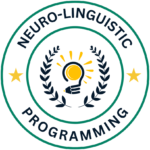Over the years, Neuro-Linguistic Programming (NLP) has become a valuable tool for coaches to enhance their practice and help clients achieve their goals. In this comprehensive guide, we will probe into necessary NLP techniques that coaches can implement to improve communication, create lasting change, and facilitate personal growth in their clients. Whether you are a seasoned coach looking to expand your skill set or a beginner eager to learn more about NLP, this how-to guide will provide you with practical strategies and tips to effectively integrate NLP into your coaching sessions.
Understanding the Basics of NLP
Definition and Origins of Neuro-Linguistic Programming
For coaches delving into the world of Neuro-Linguistic Programming (NLP), understanding its definition and origins is crucial. NLP is a psychological approach that focuses on the connections between neurology, language, and behavior patterns. Developed in the 1970s by Richard Bandler and John Grinder, NLP seeks to understand how individuals perceive the world and communicate with others.
Key Principles Underlying NLP Techniques
One of the key principles underlying NLP techniques is the belief that the language we use and the patterns of our thoughts greatly influence our behaviors and emotions. NLP techniques aim to reprogram these linguistic and cognitive patterns to help individuals achieve their goals, overcome obstacles, and improve their interactions with others.
Preparing for NLP Interventions
The NLP: The Essential Guide to Neuron Linguistic … provides a comprehensive overview of NLP techniques for coaches. When preparing for NLP interventions, there are vital steps to take to ensure successful outcomes.
Establishing Rapport with Clients
On establishing rapport with clients, it is crucial for coaches to build trust and connection from the beginning. Active listening, empathy, and mirroring techniques can be employed to establish a strong rapport with clients, fostering a safe and open environment for NLP interventions.
Setting Clear Outcomes for Coaching Sessions
An vital step in preparing for NLP interventions is setting clear outcomes for coaching sessions. Coaches should work closely with clients to define specific goals and objectives for each session. By clearly outlining what the client wishes to achieve, coaches can tailor NLP techniques to effectively support their clients in reaching their desired outcomes.
Another important aspect of setting clear outcomes for coaching sessions is ensuring that these goals are realistic, measurable, and aligned with the client’s values and priorities. By establishing clear expectations and objectives at the outset, coaches can track progress and adjust strategies as needed to support the client effectively.
Core NLP Techniques for Coaches
How-to Utilize Anchoring for Positive Change
On the journey of facilitating positive change, anchoring is a powerful tool in a coach’s toolbox. By associating a specific stimulus with a desired emotional state, coaches can help clients evoke that state at will, enabling them to access resourceful feelings when needed.
Tips on the Effective Use of Reframing
If utilized effectively, reframing can transform a client’s perspective on challenging situations, opening up new possibilities and promoting growth. Coaches can help clients reframe their limiting beliefs or negative thought patterns into more empowering interpretations, leading to enhanced self-awareness and improved problem-solving skills.
- The art of reframing lies in helping clients see a situation from multiple angles.
Factors to Consider When Employing the Meta-Model
When employing the Meta-Model, coaches must consider various factors to ensure effective communication and understanding with their clients. It is necessary to navigate linguistic patterns skillfully and ask precise questions that lead to uncovering underlying beliefs and thought processes.
- Knowing when and how to challenge a client’s language patterns is crucial in the Meta-Model technique.
Advanced NLP Strategies for Client Transformation
- How-to Implement the Milton Model for Persuasive Communication
- Tips for Mastery of Submodalities in Coaching Practice
How-to Implement the Milton Model for Persuasive Communication
After mastering the basics of NLP, coaches can implement the Milton Model to enhance their persuasive communication skills. The Milton Model involves using indirect language patterns to influence and create rapport with clients. By utilizing vague language, presuppositions, embedded commands, and analogies, coaches can guide clients to new perspectives and insights.
Tips for Mastery of Submodalities in Coaching Practice
After learning about submodalities, coaches can enhance their coaching practice by mastering these elements of sensory experience. This involves understanding how clients mentally represent their experiences and how small changes in these representations can lead to significant shifts in thoughts, emotions, and behaviors. Coaches can experiment with submodalities by changing the qualities of these representations, such as size, brightness, color, location, and distance. Perceiving these subtle changes can help coaches identify and address limiting beliefs, emotions, and behaviors in clients.
- Experiment with different submodalities to see which elicit the most profound changes in clients.
- Practice using submodalities during coaching sessions to help clients shift their perspectives and break through barriers.
- Pay attention to non-verbal cues and language patterns that indicate how clients are representing their experiences internally.
- Perceiving these subtle changes can help coaches identify and address limiting beliefs, emotions, and behaviors in clients.
For instance, a coach might notice that a client represents a stressful memory as a large, dark image close to them. By guiding the client to adjust the submodalities, such as making the image smaller, brighter, and farther away, the client may experience a decrease in the intensity of the negative emotions associated with the memory.
Integrating NLP with Other Coaching Modalities
How-to Combine NLP with Goal-Setting Frameworks
While NLP provides powerful tools for transforming beliefs and behaviors, integrating it with goal-setting frameworks can enhance coaching outcomes. Start by eliciting well-formed outcomes using NLP techniques, then align these goals with the client’s values and create action plans that leverage NLP strategies to overcome limiting beliefs and barriers.
Tips on Blending NLP with Mindfulness Techniques
While NLP focuses on empowering clients to change their internal representations, blending it with mindfulness techniques can deepen self-awareness and emotional regulation. Encourage clients to practice mindfulness to become more present and non-judgmental, allowing NLP interventions to be more effective in creating lasting change.
- Blend NLP techniques with mindfulness practices to enhance self-awareness.
- Assume that combining these approaches can lead to more profound coaching breakthroughs.
Modalities
Blending NLP with other coaching modalities such as positive psychology or solution-focused therapy can offer a comprehensive approach to addressing clients’ needs. By incorporating techniques from different modalities, coaches can tailor their interventions to the unique preferences and learning styles of each individual, maximizing the effectiveness of the coaching process.
- Assume that integrating various modalities can enhance the versatility and impact of coaching sessions.

Measuring the Impact of NLP in Coaching
How-to Assess the Effectiveness of NLP Interventions
One important aspect of measuring the impact of NLP in coaching is to assess the effectiveness of NLP interventions. This can be done by tracking the progress of the coachee before, during, and after the use of NLP techniques. Regular evaluations and feedback sessions can help determine the impact of NLP interventions on the coachee’s goals and overall well-being.
Factors Influencing Long-Term NLP Success
Little do coaches know that several factors can influence the long-term success of NLP interventions in coaching. These factors include the willingness of the coachee to engage with the NLP techniques, the rapport between the coach and coachee, consistency in practicing NLP methods, and the alignment of NLP interventions with the coachee’s values and beliefs. After identifying these factors, coaches can tailor their approach to maximize the effectiveness of NLP interventions.
- Willingness of the coachee to engage with NLP techniques
- Rapport between the coach and coachee
- Consistency in practicing NLP methods
It is necessary for coaches to understand these factors and their influence on the long-term success of NLP interventions in coaching. By addressing these factors, coaches can create a more supportive and effective environment for the coachee to achieve their desired outcomes.
- Alignment of NLP interventions with the coachee’s values and beliefs
Conclusion
Upon reflecting on the NLP techniques discussed in this vital how-to guide for coaches, it is evident that mastering these strategies can greatly enhance a coach’s effectiveness in guiding clients towards success. By incorporating NLP techniques such as reframing, building rapport, and utilizing language patterns, coaches can create a positive impact on their clients’ mindset, behavior, and results. The power of NLP lies in its ability to tap into the subconscious mind and reprogram limiting beliefs, ultimately leading to transformative and lasting change. Coaches who integrate these NLP techniques into their practice will undoubtedly see a significant improvement in their coaching outcomes and client satisfaction.
FAQ
Q: What is NLP?
A: NLP stands for Neuro-Linguistic Programming, a set of techniques and strategies used to better understand how people think and behave in order to improve communication and personal development.
Q: How can NLP benefit coaches?
A: By using NLP techniques, coaches can enhance their communication skills, build rapport with clients, help clients overcome limiting beliefs, and facilitate positive behavioral changes.
Q: What are some common NLP techniques coaches can use?
A: Some common NLP techniques for coaches include reframing, anchoring, mirroring, pacing and leading, and the use of sensory language to create powerful change in clients.
Q: How can coaches learn NLP techniques?
A: Coaches can learn NLP techniques through training courses, workshops, books, and online resources that provide a step-by-step guide on how to effectively apply NLP in coaching sessions.
Q: Are there any ethical considerations coaches should keep in mind when using NLP techniques?
A: Coaches should always prioritize the well-being and autonomy of their clients when using NLP techniques, ensuring that interventions are in the client’s best interest and are conducted with integrity and respect for boundaries.





